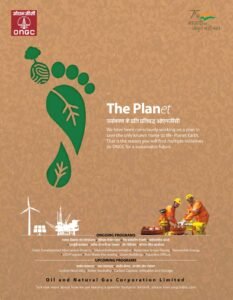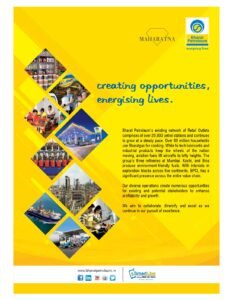
Raavi Birbal is a talented young legal professional. She counsels many corporate houses. Her in-depth understanding of their role in sharing responsibility to help society is appreciated by her peers. According to her, CSR is evolving and has great potential to create shared value.
Time to re-think and innovate Corporate Social Responsibility. CSR can aid in achieving the Constitutional Right to Work and a skilled workforce. An imperative and noble endowment is that corporations can prepare people for careers and bring forth training and educational and vocational modules.
Charity is great. A life of dignity is equally important. Apart from corporate responsibility, a pertinent need of the country is the technologically advanced workforce.
Spending CSR funds on such groundings, especially tech-related, will serve a twofold purpose, the economy with a proficient workforce and a life of nobility. The turbulent global markets seeking revival strategies face enormous challenges to meet the basics of society. CSR initiatives focus on health, conservation of natural resources, philanthropy, environment, etc.
If job creation and training modules can also become one of the intents, then some of the greatest economic challenges can be tackled. With the recession hitting cross borders, it becomes even more imperative.
Article 41 of The Constitution of India provides the right to work, education, and public assistance in certain cases. Humans deprived of the virtue of livelihood are deprived of the right to life as enumerated under Article 21. Article 23 of the Universal Declaration of Human Rights, among other things, states everyone has the right to work.
European Union Charter of Fundamental Rights reiterates the same. CSR can succor these. There ought to be a position for all, including the disabled (the divinely abled), illiterate, and ones suffering ill health. Each job can be diverse- full-time, part-time, work from home, part-time, relaxed, etc. Apart from the twin benefits as above, such handouts will provide employers with various skills and mindsets, apart from a flexible workforce.
Furthermore, the trend of outsourcing has increasingly seen the movement of jobs from the West to developing economies like India, Brazil, Indonesia, etc. If India can focus on shifting CSR funds to practical training and pedagogies, it may attract better business, for we have a resourceful and trained workforce. This may be in sectors like technology, IT, research and development, manufacturing, education, Hospitality, etc. There is also a need for CSR initiatives that can create entrepreneurship, local outsourcing, etc.
Western companies are increasingly using corporate Social Responsibility initiatives to promote brands and create a positive impact in the community. Consumers abroad are willing to pay additional for goods and services from socially active entities.
Let ethics and empathy merge with economics for a stronger nation having inclusivity for each one. For then, CSR would Create Shared Value.






























